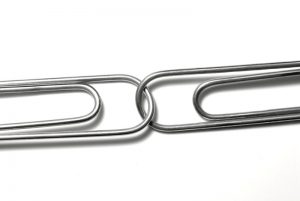When it comes to job interviews, the hiring manager is in the driver’s seat. They ask the questions and make the decisions. But candidates aren’t simply passengers in the process. It’s possible and appropriate to take control in several situations.
“Taking control in a job interview can help you showcase your qualifications, make a strong impression, and steer the conversation in a direction that highlights your strengths,” says Paul Bramson, CEO of the Paul Bramson Companies, which offers sales and leadership training programs. “However, it’s essential to strike a balance between taking control and being respectful.”
Know What You Can Control
The first step is to understand what you can control. While you can’t or shouldn’t try to control other people in the interview, you have free rein over yourself, says Dawid Wiacek, executive coach and founder of Career Fixer, a career coaching firm. For example, you can control how you show up, including your energy, as well as the examples, anecdotes, and metrics you emphasize and the questions you ask.
“Self-awareness is a powerful tool,” Wiacek says. “If you catch yourself talking too fast during an interview, rather than continuing on the path and rambling, it might be beneficial to pause and say, ‘As you can tell from my energy level, I’m excited about potentially joining your team. But I’ve already talked quite a bit, and I want to hear from you. What other questions do you have for me?’ That shows self-awareness and demonstrates ‘command of thyself.’”
Controlling your physiological responses by watching your body language and presence helps exude confidence, says Steve Knox, vice president of global talent acquisition at the HR services provider Dayforce (formerly Ceridian).
“Ensure as a candidate you control your breathing to allow time for slow and thoughtful responses,” Knox suggests. “This may seem trivial, but it does allow you to control the pace and speed of the interview itself to ensure you represent your best self.”
Do Your Research
You can also exert some control during an interview by doing your homework, which allows you to enter into an intelligent dialogue with the person interviewing you, Knox says, explaining, “It stops the interview from just being questions fired at you to more of a dialogue and . . . this in turn allows you to have a thoughtful conversation.”
Use what you learn about the company to help steer the interview. For example, if you discover the company has new strategic goals, you could mention how your experience might benefit those initiatives, suggests Knox, who once interviewed a candidate who brought up the company’s focus on becoming global.
“He started to proactively highlight his global experience and how he had helped a past organization work through a similar strategy,” Knox says. “It was impressive to know this candidate was not only well aware of our organization and its strategic vision but that he would be well equipped to help us execute on this strategy. Connecting the dots also shows business acumen and self-awareness.”
Be Clear On What You Want
Being in control also means knowing what you’re looking for in your job search, beyond the title and compensation, says Jess Wass, career coach and CEO of Reworkit, a career coaching company.
“When you understand what types of roles you thrive in, the managerial support you need, and the culture that enables you to do your best work, you start to have more of a role in the interview process. If you haven’t thought much about those factors, it’s easy to let the company run the interview process instead,” Wass says.
“Remember, this is also very much about you interviewing them as they are interviewing you,” says Lesly Cardec, SVP of recruiting and marketing for ClearEdge Marketing, a marketing, recruiting, and leadership-development services provider. “Don’t let the conversation be one-sided. This is a discovery process that involves more than one person.”
Ask Strong Questions
Once you know what you’re looking for, you can start to craft questions for the interviewers. “This means you are just as involved in this interview process as the company,” Wass says. “By starting with what is important to you, it enables you to ask less-generic questions. This shows that you have put thought into the process, which most companies will respect and value.”
At the beginning of the interview, ask if time can be saved at the end for you to ask questions, Wass adds, noting, “Otherwise, they may run out of time . . . and not realize you had any important questions to ask. By asking about this at the start, you can set expectations and take back control over the interview.”
And make sure your questions are strong, advises Bill Catlette, partner with Contented Cow Partners, a leadership and workforce advisory firm. “Having one or two big questions at the ready can give you a sense of control,” he says, providing some examples: “What’s your go-forward strategy with respect to AI? What kind of person is happiest and most successful working here? What do you like most about working here? How does your company prioritize learning? Do you practice promotion from within?”
Prepare Your Answers
Confidence and control often stem from being well-prepared. While you won’t know everything you may be asked, you can and should anticipate common interview questions, Bramson says.
“Have a strong opening statement and begin by taking control at the very start of the interview,” he suggests. “When the interviewer asks, ‘Tell me about yourself,’ or a similar opening question, use this opportunity to provide a strong, concise introduction that sets a positive tone and highlights your key qualifications and enthusiasm for the role.”
Also, be ready to explain any blips in your employment. “If you have a gap in your employment history or lack a specific qualification, be prepared to explain how your other experiences or skills compensate for it,” Bramson says. “When discussing your personality, work style, or teamwork skills, take control by aligning your attributes with the company’s culture and values.”
Before You Go
Don’t leave the interview without taking control of what happens next, Bramson adds. “Politely inquire about the next steps in the hiring process and when you can expect to hear back.” This shows the interviewer that you’re interested in the position and provides some accountability about next steps.
“By steering the conversation, you can ensure that you cover the aspects of your qualifications and experiences that are most relevant to the position,” Bramson says. “Taking control from the beginning demonstrates confidence and assertiveness, setting a positive tone.”
(14)
Report Post







